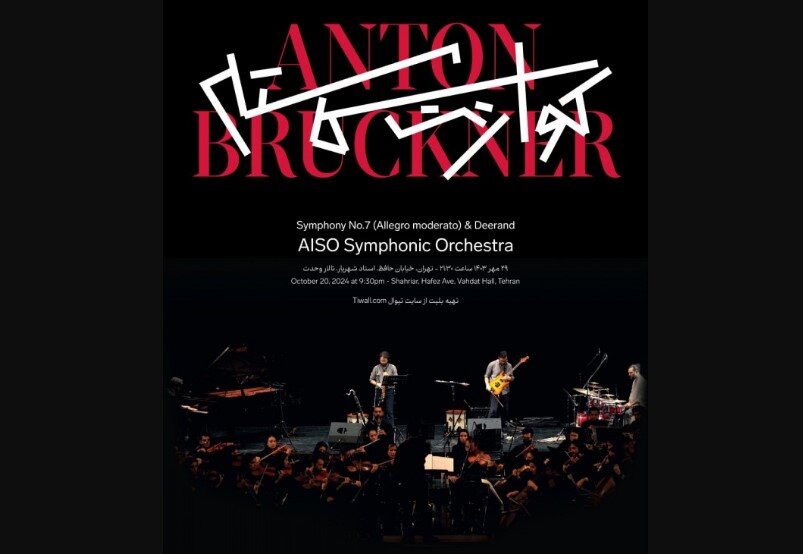Tehran’s Vahdat Hall to host Bruckner’s 200th anniversary concert

TEHRAN- On the occasion of the 200th anniversary of Anton Bruckner, Austrian composer and organist, Iranian Kasteh Quartet and AISO Symphonic Orchestra will take the stage at Vahdat Hall on Sunday.
The performance will begin with the first movement of Bruckner's Symphony No. 7, Allegro Moderato, followed by the piece Deerand from the Kasteh Quartet's new album in collaboration with the AISO Symphonic Orchestra, ILNA reported on Wednesday.
The Kasteh Quartet has performed various concerts both inside and outside Iran over the past two years. Moreover, tickets for this event sold out within a day, the report added.
Kasteh Quartet's fourth album, titled "Deerand," was recently unveiled in Europe and will soon be available to the public.
Last month, the Kasteh Quartet performed in Spain, showcasing "Deerand" along with two pieces from their previous albums.
Joseph Anton Bruckner (1824-1896) was an influential Austrian composer and organist renowned for his symphonic and sacred music. His masterpieces, particularly his symphonies, epitomize the late Austro-German Romantic period, characterized by a rich harmonic language, robust polyphony, and expansive length. Bruckner's symphonies are marked by dissonances, unexpected modulations, and wandering harmonies that helped shape the musical landscape of his time.
Bruckner's style diverged significantly from that of his contemporaries like Richard Wagner and Gustav Mahler. Unlike Wagner, who was known for his musical radicalism, Bruckner displayed a profound respect and humility towards other musicians, particularly Wagner. This contrast often leads to a complex understanding of his life and works. Critics, including Eduard Hanslick, often dismissed Bruckner's symphonies for their size and repetitive elements, challenging their structural coherence. However, his later admirers acknowledged the intricate logic and innovation within his compositions.
One notable aspect of Bruckner's career is his tendency to revise his works, resulting in multiple versions of his symphonies. This practice stemmed partly from his sensitivity to criticism, a trait that contributed to the so-called "Bruckner Problem," which refers to the debates surrounding the authenticity of his scores and the numerous revisions they underwent. Despite these controversies, his symphonies expanded the conventions of symphonic form, integrating complex themes and a unique orchestral palette – including the use of Wagner tubas in his later works.
Bruckner's profound spirituality is reflected in his sacred music, which encompasses Masses, motets, and the notable Te Deum. These compositions reveal his deep religious convictions and musical versatility. Today, Bruckner's symphonies are celebrated for their monumental scope and philosophical depth, securing his place as one of the great composers of the Romantic era. His works continue to challenge and inspire musicians and audiences alike, marking an enduring legacy in classical music.
SAB/
